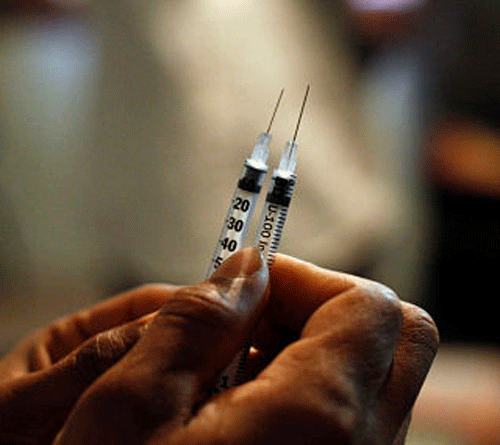
The Upaloka- yukta, after an initial inquiry, has charged the State Drugs Control Department of approving substandard drugs at the expense of public health.
Upalokayukta Justice Subhash B Adi, investigating a complaint against a chief scientific officer (CSO) and other officials at the department, said he had prima facie found that certain ‘unqualified’ drugs had been certified as ‘qualified’ even after tests had shown they were unfit for use.
The complainant, advocate Shivarudra, had alleged that large-scale malpractice was involved in the testing of Ccliya (Clomifene Citrate Tablets) and Roxithromycin tablets. Ccliya is used in fertility treatment and Roxithromycin is an antibiotic used in respiratory tract infections.
“Ccliya comes under the list of Essential Medicine of India 2011. The officer in question, the CSO, alleged that the government analyst had used a wrong filter while conducting the earlier tests. However, the CSO did not inform this to anyone in the office.
From the preliminary inquiry, prima facie it appears that there is callousness and dereliction and a likelihood of some amount of collusion to approve the drug at the cost of public health. If the Drug Controller’s office indulges in malpractice, then God alone has to save the people,” Adi told Deccan Herald.
Drug fails test
The complaint stated that on February 11, 2014, Drug Inspector (Bangalore Circle-4) S Venkatesh had sent the sample of Ccliya for testing. Government analyst Mohammed Saifuddin Rubbani in turn sent it to junior scientific officer Girish M K.
The test was conducted on February 18, and since the drug did not satisfy the “dissolution test”, it was declared “not of standard quality”. A dissolution test checks the efficacy of the drug.
The report, disqualifying Ccliya, was forwarded to chief scientific officer Sudha Swamy, said the complaint.
Swamy returned the samples to the government analyst for a re-test on March 10. Some 17 days later, Girish returned the sample with the same conclusions – that Ccliya was “not of standard quality”.
According to the complaint, Swamy, for a third time, returned the report to the government analyst asking for a re-test. The government analyst again submitted a negative report.
Nexus alleged The complainant alleged that Swamy and other officials were hand in glove with the private drug manufacturers and were forcing laboratory scientists to prepare a “favourable” report.
After the third return, on April 11, Swamy finally approved the report and a directive was sent to retailers, wholesalers and manufacturers to prevent the sale of the drug.
‘Change report’
But Swamy, along with Scientific Officers Parvathi Anand Gowder and Pramila, allegedly continued to pressure the government analyst to change the report.
On April 15, another test was conducted, which “passed” the drug. The complainant alleged that similarly repeated tests were conducted for Roxithromycin and other drugs.
As per Indian specifications, Ccliya must have satisfied 80 per cent dissolution.
However, the first four tests had shown that the drug gave a dissolution capacity of 54.11 per cent, 57.26 per cent, 34.92 per cent and 70.74 per cent.
Deccan Herald is on WhatsApp Channels| Join now for Breaking News & Editor's Picks